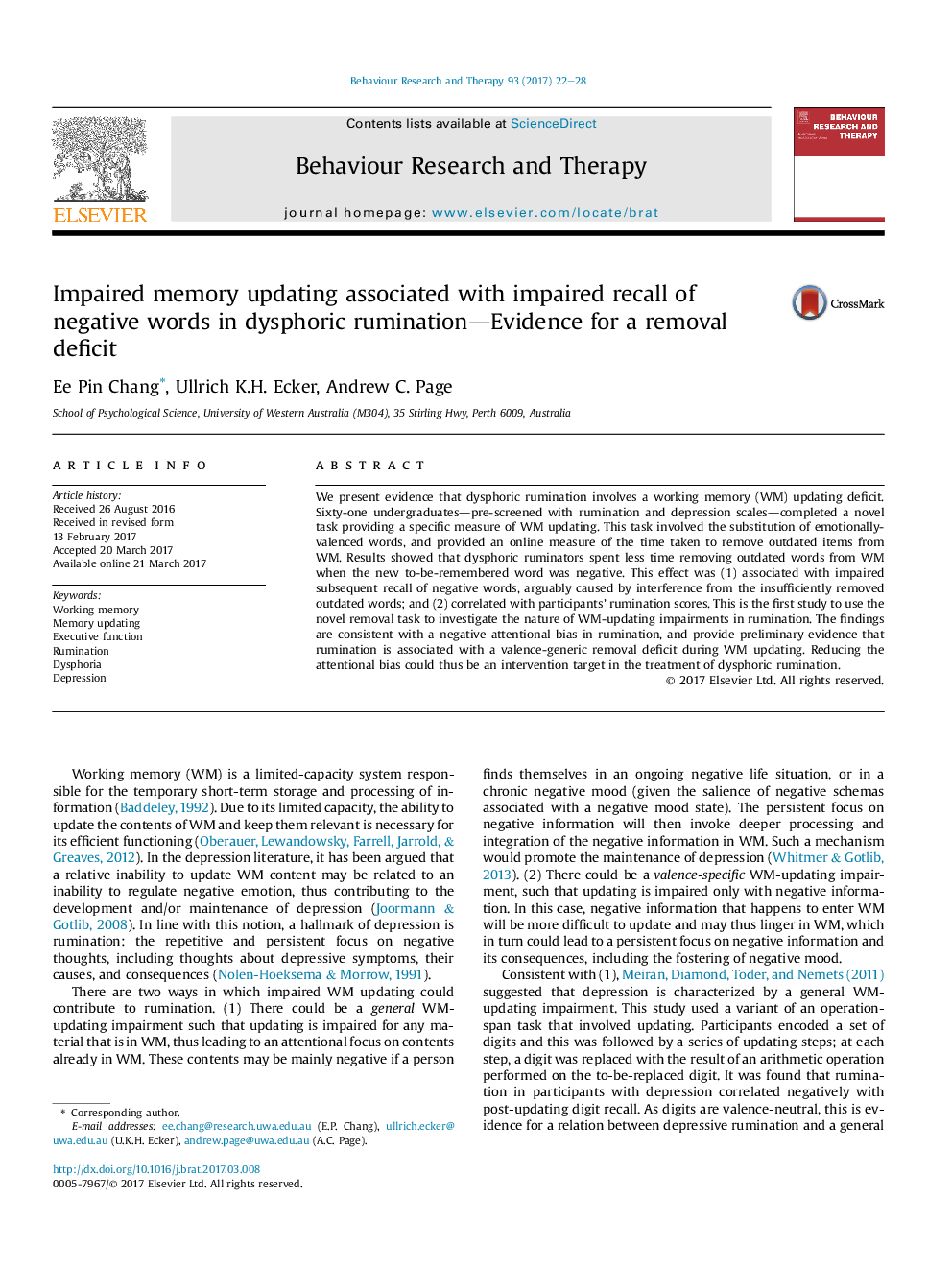| کد مقاله | کد نشریه | سال انتشار | مقاله انگلیسی | نسخه تمام متن |
|---|---|---|---|---|
| 5038199 | 1472756 | 2017 | 7 صفحه PDF | دانلود رایگان |
- We investigated memory updating in depressive rumination using valenced words.
- A novel task measured the time for removal of outdated words during memory updating.
- Ruminators spent less time on removal when updating towards negative words.
- The valence-generic removal deficit can be explained by a negative attentional bias.
- The removal deficit predicted impaired recall of negative words due to interference.
We present evidence that dysphoric rumination involves a working memory (WM) updating deficit. Sixty-one undergraduates-pre-screened with rumination and depression scales-completed a novel task providing a specific measure of WM updating. This task involved the substitution of emotionally-valenced words, and provided an online measure of the time taken to remove outdated items from WM. Results showed that dysphoric ruminators spent less time removing outdated words from WM when the new to-be-remembered word was negative. This effect was (1) associated with impaired subsequent recall of negative words, arguably caused by interference from the insufficiently removed outdated words; and (2) correlated with participants' rumination scores. This is the first study to use the novel removal task to investigate the nature of WM-updating impairments in rumination. The findings are consistent with a negative attentional bias in rumination, and provide preliminary evidence that rumination is associated with a valence-generic removal deficit during WM updating. Reducing the attentional bias could thus be an intervention target in the treatment of dysphoric rumination.
Journal: Behaviour Research and Therapy - Volume 93, June 2017, Pages 22-28
